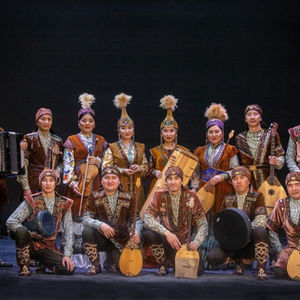UKILI YBYRAI AKMOLA
Kazakhstan is a country in Central Asia, bordering Russia, China, Kyrgyzstan, Uzbekistan and Turkmenistan. It is essentially composed of steppes. It is often referred to as a "Central Asian country" because of its historical, linguistic, cultural and political ties with its immediate neighbours. The far west of the country is generally not considered to be geographically part of Central Asia, but of Europe. Kazakhstan is thus located on two continents, although the European part is desert and very sparsely populated.
The Kazakhs are from the interbreeding of the Turks and the Mongols. The term appeared in the 13th century. He has first social value: 'free man', 'vagabond', 'exiled'. The word 'Kazakh' would therefore probably have designated Turko-Mongol groups beyond the control of the powers. It was about controlling the Silk Road. The horse will be the major and unifying cultural element. At that time, the Islamization of nomadic pastoralists begins. It will be slow and superficial. In the 15th century, independent Kazakh khanates were formed. They grouped in the following century into three hordes: the small horde (northwest of Kazakhstan), the middle horde (center) and the large horde (southeast).
The Chinese, Mongol, and Kalmyk incursions continue. To put an end to it, the Kazakhs make contact with the Cossacks who animate the Russian pioneer front on the Ural. Las! The Russians quickly took over and, in 1730, began a full-fledged conquest. The Hordes are subjugated in a little over a century. The Kazakhs do not abandon their culture and roots, which they bear witness to through popular arts and traditions, and music.
Kazakh music is that of the steppes and the Turkish-speaking bards. Although under Soviet influence for a while, it managed to keep its originality. Similarly, it was able to resist neighboring or ancient Muslim influences, the Kazakhs having quickly operated a syncretism between Allah and the Tengri, the god above all. Kazakh music is both a reflection of daily life, a memory of the past and an opening to the spirit world. The traditional music is rural and it is peddled by nomadic pastors.
Folk dances reflect the daily life of nomads in the great steppes and the predominant place of the horse in their daily lives. The costumes are sumptuous and traditional. Dances reflect not only social relations and customs, but also outline the contours of a national history as it shapes today’s collective memory of this country.
Land of confluences and traditions, Kazakhstan delegates one of the best of its ballets to us with the National Folk Ensemble "Ukili Ybyrai Akmola". Composed of dancers and musicians, of very high artistic level, it has traveled the world to present the popular arts and traditions of a country whose independence has restored faith in the future. This nation, made up of former sedentary nomads and still steeped in the immateriality of their memory, demonstrates a rare ability to adapt to changes and innovation. The performance of the National Folk Ensemble "Ukili Ybyrai Akmola" is extremely representative of his country.














